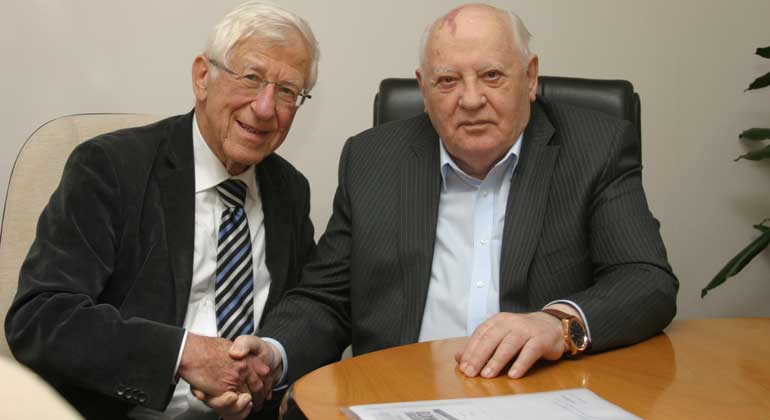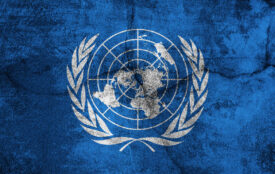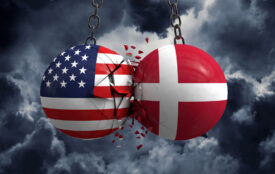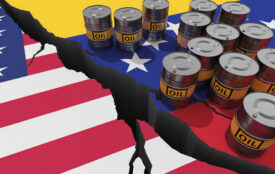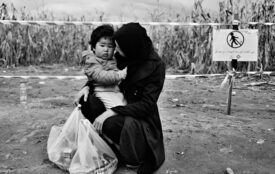If you want peace, prepare for peace
The success story of the European Union shows that peace is possible between nations that were once enemies. For almost 80 years, no EU member state has ever attacked another EU country militarily.
And this despite the fact that wars were waged between these countries for centuries and millions died. Yesterday’s enmities can give rise to friendships and cooperation. This is the case in our private lives and it is the case in politics. We all know this. Trust is the gold standard.
What does this fundamental human insight mean for the war in Ukraine? In order to start real peace negotiations, preliminary negotiations must be held. The EU has succeeded in ‘defeating’ yesterday’s enmities. In the Süddeutsche Zeitung, Heribert Prantl writes on 19 March 2025: ‘Today it is important to de-enmity today’s enmities… it is essential to think about a peace order after this war while it is still going on’. At the moment, Presidents Trump, Putin and Selenski are trying, rather unsuccessfully. At least so far, a kind of basic trust is missing in these talks. That is why it still seems impossible to end this war three years after it began.
After Putin’s war of aggression, which was in violation of international law, hardly anyone in this country can imagine a ‘disenmity’. The conviction that ‘you can’t negotiate with Putin’ still applies in German politics. But how do we want to contribute to an end to the war with this attitude?
Just as a peace between Russia and Ukraine seems as inconceivable to many people today as an end to the Cold War did 30 years ago, it nevertheless came about and even led to the peaceful reunification of Germany. From this wonderful experience, we in Germany have a special historical responsibility.
This can be learned above all from the Sermon on the Mount of Jesus, which recommends ‘love of one’s enemies’. Was Jesus therefore a crackpot and a hopeless idealist? His love of one’s enemies does not mean ‘put up with everything’, but rather ‘try to understand your enemy or opponent and take the first step towards him – put yourself in his shoes’. In doing so, it must be self-evident to us that Russia belongs to Europe.
Mikhail Gorbachew spoke of ‘Europe as our common home’. He negotiated with President Reagan in 1986, initially building trust with him in confidential one-on-one talks in Reykjavik – as he explained to me in our joint “Listen to reason – War no more!: An Appeal from Mikhail Gorbachev to the world”. Then Gorbachev suggested to Reagan that all nuclear weapons be abolished and a completely nuclear-free world created. Reagan replied that he would not be able to get this through to his hardliners in Washington. Then Gorbachev suggested – despite his hardliners in Moscow – that at least 80 percent of the most dangerous nuclear weapons in Europe be abolished. These were the SS 20 in the east and the Pershings in the west. These were then actually scrapped completely. The very different presidents managed the biggest, most controlled and most important disarmament step in history. And the ‘miracle’ of peaceful German reunification became possible. Those who do not believe in miracles are not realists. This is what love of one’s enemy can achieve. Love of one’s enemy is not an illusion.
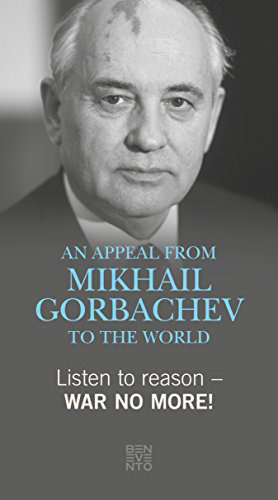
This ‘defeating’ could only succeed through previous confidence-building measures in which both sides participated. This would also be possible and necessary now. NATO had 16 members in 1989. Today, due to NATO’s eastward expansion, NATO’s southward expansion and NATO’s northward expansion, it has 32 members. This bothers us in the West little, but from Putin’s and Russia’s point of view, which feels encircled, it looks quite different.
We have to learn, as we did during the Cold War, that Russia belongs to Europe, to the ‘common European house’ (Gorbachev), and that security in today’s nuclear age can only be joint, collective security. Because any nuclear war would be the last war in human history, because after that there would be no more people left to wage war. If you want peace, you have to prepare for peace. But that cannot be done through permanent, collective, expensive and dangerous rearmament. It is true that Ukraine needs security guarantees for a just peace. But encircled Russia also needs security guarantees. As long as we are not prepared to negotiate with Putin about this, he will not seriously engage in peace negotiations.
- Mikhail Gorbachev “Listen to reason – War no more!: An Appeal from Mikhail Gorbachev to the world” (English Edition)

